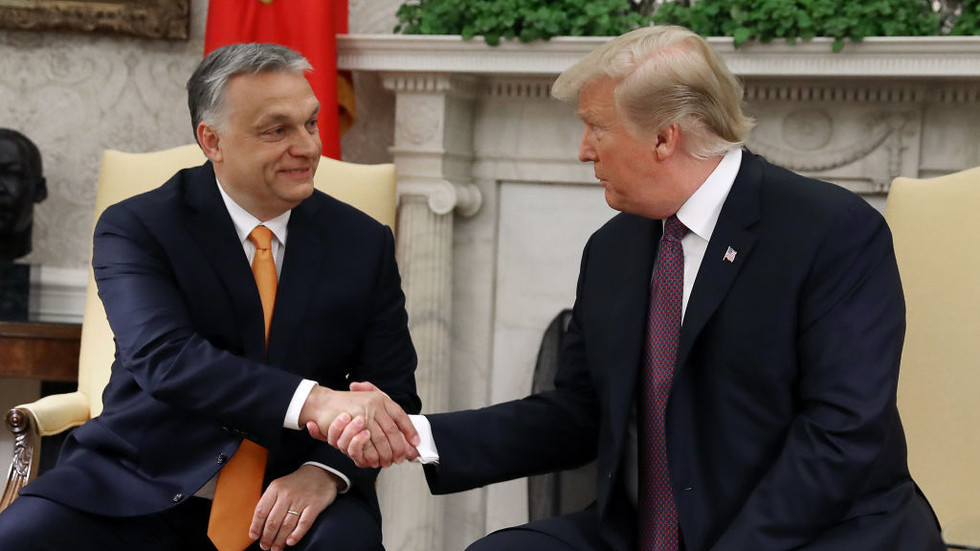Hungary is currently stalling the approval of a crucial procedural change related to sanctions on Russia, a development that has significant implications for a planned €45 billion loan to Ukraine by the G7. According to reports from EU diplomats, Budapest’s delay appears to be a calculated move aimed at benefitting former U.S. President Donald Trump, especially in light of the upcoming U.S. presidential election. The loan, which would utilize the profits obtained from frozen Russian assets, relies heavily on the European Commission’s commitment to contribute up to €35 billion, with the remainder being covered by the United States and other G7 nations. However, this ambitious financial plan is threatened by the need for renewed sanctions, which require unanimous approval from EU member states every six months.
Despite the general consensus among most EU countries to extend the period for sanction renewals to 36 months, Hungary remains resistant. Hungarian Finance Minister Mihaly Varga suggested that the EU should wait until after the U.S. elections to decide on prolonging the sanctions, indicating that the determination of future U.S. policy on Ukraine should be a pivotal factor in the EU’s decision-making process. The stark contrast in viewpoints between the Republican candidate, Trump, who has hinted at possible cessation of aid to Ukraine, and Democratic candidate Kamala Harris, who supports continued involvement, adds to Hungary’s reluctance to move forward.
Sources suggest that Hungary’s stance primarily benefits Trump, as if the European Union secures approval for the loan without U.S. backing, it would diminish Trump’s obligation to support the initiative should he be re-elected. In this scenario, he may choose to withdraw American support for Ukraine, a scenario he has previously alluded to. This situation raises valid concerns regarding the financial support for Ukraine and could risk a fracture in transatlantic unity, especially if the Biden administration and European allies perceive Hungary’s delay as undermining collective efforts against Russian aggression.
Furthermore, Hungary’s Prime Minister Viktor Orban has historically maintained a close relationship with Trump, demonstrating a clear preference for a Republican administration. His enthusiastic backing of Trump’s campaign underscores this alliance, with Orban even expressing a willingness to celebrate a Trump victory. Both leaders have promoted the idea of pursuing a swift diplomatic solution to the ongoing conflict in Ukraine, which adds a layer of complexity to their mutual interests. Orban’s rhetoric implies that a Trump presidency could enhance the likelihood of reaching peace, providing a possible rationale for Hungary’s current stance on sanction approvals.
The significance of the EU sanctions changes is expected to be a critical focal point at the upcoming EU leaders’ summit in Brussels, where member states will discuss the future of their sanctions strategy and support for Ukraine. This gathering could either exacerbate tensions or create opportunities for consensus amid the complexities introduced by Hungary’s position. The strategic implications of Hungary’s actions against the backdrop of international relations illustrate the intertwining of national interests and foreign policy decisions, particularly in a volatile geopolitical landscape.
In summary, Hungary’s deliberate stalling on the procedural changes to sanctions against Russia underscores its strategic interests aligning with Trump’s potential return to power. This approach, while potentially undermining the EU’s financial commitments to Ukraine, reflects deeper geopolitical considerations in the context of the upcoming U.S. elections. The interactions between Hungary’s government and key players in the U.S. raise critical questions about the future of unity among Western allies, particularly as they grapple with the continued challenges posed by the conflict in Ukraine and Russian aggression. Discussions at the forthcoming EU summit will ultimately aim to navigate these complexities while seeking a unified front in support of Ukraine’s financial stability.

